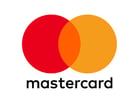For media inquiries on these stories and more, contact credit card expert and industry analyst Bill Hardekopf at (205) 985-9725 or billh@cardrates.com.
1. Covid-19 Shopping Makes Card Fees a Bigger Burden for Merchants
 Visa and Mastercard are planning to raise swipe fees for some types of credit card purchases in April, adding to the squeeze felt by restaurants, retailers, and other merchants already struggling through the Covid-19 pandemic.
Visa and Mastercard are planning to raise swipe fees for some types of credit card purchases in April, adding to the squeeze felt by restaurants, retailers, and other merchants already struggling through the Covid-19 pandemic.
What’s more, customers’ switch to online shopping during the pandemic, a trend heralded for keeping businesses afloat when people are reluctant to venture inside stores, is also creating extra costs for merchants. Swipe fees, which merchants pay when a customer pays by card, are often higher on online purchases.
• Story By: AnnaMaria Andriotis, The Wall Street Journal
2. Biden Wants to Shut Down Credit Bureaus. What Would That Mean for You?
 One of the more fascinating platform items of the Biden presidential campaign was the idea of transferring consumer credit ratings from Equifax, Experian, and TransUnion to a public registry under the Consumer Financial Protection Bureau.
One of the more fascinating platform items of the Biden presidential campaign was the idea of transferring consumer credit ratings from Equifax, Experian, and TransUnion to a public registry under the Consumer Financial Protection Bureau.
This idea was examined in depth in a paper published by a think tank called Demos in 2019. One major takeaway of that paper was that “decisions drawing on credit data reproduce and spread existing racial inequality, making it harder to achieve true economic equity.” Demos proposed the idea of a public credit registry in that paper.
• Story By: Ann Logue, Go Banking Rates
3. Capital One Starting to Raise Credit Limits in Hunt for Growth

Capital One has begun to lift borrowing limits for certain customers as it seeks to restart growth in its sprawling credit card business. Increases are being offered to existing customers with both prime and subprime credit scores.
The company continues to hand out smaller credit lines to new customers. Capital One, the third-largest U.S. credit card issuer, was among the first banks to cut borrowing limits last year as jobless claims mounted amid the Covid-19 crisis.
• Story By: Jennifer Surane, Bloomberg
4. Visa is Eyeing the Opportunity Beyond Checkout and Estimates It’s Worth $185 Trillion
 The Covid-19 crisis has sped up the adoption of digital payments, part of a transition that Visa argues could help it tap opportunities worth many times more than the market for retail payments.
The Covid-19 crisis has sped up the adoption of digital payments, part of a transition that Visa argues could help it tap opportunities worth many times more than the market for retail payments.
While Visa is best known for its plastic credit and debit cards, the company has been making a push into other elements of the payments universe, including cryptocurrency services as well as disbursement technology that enables things like on-demand payouts to gig-economy workers. The company sees new payment flows as a way to get in on $185 trillion worth of money moving outside the checkout landscape, dwarfing the already sizable opportunity that exists in converting the $17 trillion of cash currently in circulation over to cards.
• Story By: Emily Bary, MarketWatch
5. Online Shopping Trends: Mobile Payments are Mighty
 Social distancing restrictions kept most consumers home and away from stores and other businesses in 2020, pushing many new customers into the online channel. That pattern was clearly evident during the 2020 holiday season; the e-commerce share of holiday shopping jumped from just over 13% in the prior year to nearly 20%.
Social distancing restrictions kept most consumers home and away from stores and other businesses in 2020, pushing many new customers into the online channel. That pattern was clearly evident during the 2020 holiday season; the e-commerce share of holiday shopping jumped from just over 13% in the prior year to nearly 20%.
While the distribution of vaccines offers retailers the hope that consumers will finally begin returning to stores in force in 2021, that process will likely take months if not most of the year. Even then, a recent survey from McKinsey found a 40% increase in consumer intent to purchase online even after the Covid-19 crisis ends.
• Story By: Jordan Reynolds, Mobile Payments Today
6. 76% Of Americans Bank Via Mobile App
 During the past 12 months, many Americans turned to the convenience of mobile banking. Roughly three in four Americans (76%) have used their primary bank’s mobile app within the last year for everyday banking tasks like depositing checks or viewing statements and account balances, according to a new survey.
During the past 12 months, many Americans turned to the convenience of mobile banking. Roughly three in four Americans (76%) have used their primary bank’s mobile app within the last year for everyday banking tasks like depositing checks or viewing statements and account balances, according to a new survey.
Only 21% of survey respondents said they didn’t use their bank’s app. The move to mobile banking (via smartphone app) and online banking (via a bank’s website) was well underway before the Covid-19 pandemic. Still, stay-at-home orders and bank branch closures certainly encouraged their use.
• Story By: Mitch Strohm, Forbes
7. In Britain, Mobile Wallets Like Apple Pay Made Up More Online Purchases than Debit Cards in 2020
 Smartphone payment methods like Apple and Google Pay were used for more online purchases last year in Britain than physical debit cards. Mobile wallet payments were used for just under a third of all online transactions in 2020, with debit cards used for 29%, according to payment processor Worldpay.
Smartphone payment methods like Apple and Google Pay were used for more online purchases last year in Britain than physical debit cards. Mobile wallet payments were used for just under a third of all online transactions in 2020, with debit cards used for 29%, according to payment processor Worldpay.
Cards were the most popular method for in-person purchases, accounting for 49%, with physical cash comprising just 13% and the likes of Apple Pay just 8%. Worldpay also found mobile wallets were the most popular way of buying things online in France, Germany, Russia, and Spain.
• Story By: George Nixon, This is Money
8. More Americans Are Paying Their Bank-Issued Credit Cards on Time: What Does This Mean For You?
 A new report found that credit card delinquencies are at an all-time low. As of the third quarter of 2020, only 1.53% of bank-issued credit card accounts were 30 days or more overdue.
A new report found that credit card delinquencies are at an all-time low. As of the third quarter of 2020, only 1.53% of bank-issued credit card accounts were 30 days or more overdue.
This is a good sign that people are being responsible, staying disciplined, managing their money smartly, and paying their bills on time. It’s also a sign that people have taken advantage of various Covid-19 relief programs and forbearance options offered by banks. Too many people being late on their credit card payments can indicate bigger economic problems. What does this historically low credit card delinquency rate mean for you and your finances?
• Story By: Ben Gran and Daphne Foreman, Forbes
9. Bitcoin is Too Volatile to be Part of Its Network: Mastercard Executive
 Mastercard made waves when the payment services giant announced earlier this month that its plan is to start allowing cryptocurrencies onto its network. But don’t expect bitcoin to be part of that.
Mastercard made waves when the payment services giant announced earlier this month that its plan is to start allowing cryptocurrencies onto its network. But don’t expect bitcoin to be part of that.
Ann Cairns, executive vice chair at Mastercard said bitcoin wouldn’t really work for its plans. “Bitcoin doesn’t behave like a payment instrument. It’s too volatile and it takes too long to transact.”
• Story By: Steve Goldstein, MarketWatch
10. Stori Raises $32.5 Million to Build Mexico’s Credit Card for the Masses
 While credit cards are commonplace in the United States, they are far less ubiquitous in many other countries, particularly those in Latin America. In Mexico, cash remains the dominant method of payment, with an estimated 86% of all payments being in the form of cash. But card usage is growing as more people are shopping online than ever before.
While credit cards are commonplace in the United States, they are far less ubiquitous in many other countries, particularly those in Latin America. In Mexico, cash remains the dominant method of payment, with an estimated 86% of all payments being in the form of cash. But card usage is growing as more people are shopping online than ever before.
According to one recent study, Mexico topped the list of the world’s fastest-growing e-commerce markets. And for the founders of Mexico City-based startup Stori, they spell opportunity. Stori launched its credit card product in Mexico in January 2020 and has so far had more than 1 million customers apply for a card.
• Story By: Mary Ann Azevedo, TechCrunch
11. Checkout Skimmers Powered by Chip Cards
 Easily the most sophisticated skimming devices made for hacking terminals at retail self-checkout lanes are a new breed of PIN pad overlay combined with a flexible, paper-thin device that fits inside the terminal’s chip reader slot.
Easily the most sophisticated skimming devices made for hacking terminals at retail self-checkout lanes are a new breed of PIN pad overlay combined with a flexible, paper-thin device that fits inside the terminal’s chip reader slot.
What enables these skimmers to be so slim? They draw their power from the low-voltage current that gets triggered when a chip-based card is inserted. As a result, they do not require external batteries and can remain in operation indefinitely.
• Story By: Brian Krebs, Krebs on Security
12. Affirm Launching Buy Now, Pay Later Debit Card
 Affirm is launching a debit card with buy now, pay later (BNPL) functionality. The Affirm Card gives people the ability to pay for something using their bank account or by opting to use the post-purchase BNPL feature.
Affirm is launching a debit card with buy now, pay later (BNPL) functionality. The Affirm Card gives people the ability to pay for something using their bank account or by opting to use the post-purchase BNPL feature.
Affirm Card users can instantly convert eligible transactions into BNPL. More than one-third of U.S. shoppers have used a BNPL service, according to data from The Ascent. In a recent study, the Federal Reserve Bank of San Francisco said that debit accounted for 30% of all payments.
• Story In: PYMNTS
13. Court Rules Some Credit Card Rewards Are Taxable
 Generally speaking, credit card rewards aren’t taxable. The reason is that the IRS views these rewards as being rebates on purchases you’re making. But in 2013 and 2014, a couple did a significant amount of manufactured spending — over $6 million — on the Blue Cash from American Express Card.
Generally speaking, credit card rewards aren’t taxable. The reason is that the IRS views these rewards as being rebates on purchases you’re making. But in 2013 and 2014, a couple did a significant amount of manufactured spending — over $6 million — on the Blue Cash from American Express Card.
The couple generated well over $300,000 in rewards in two years, though unfortunately for them, the amount of spending caught the attention of the IRS. The court made an interesting distinction here and decided that rewards related to Visa gift card purchases wouldn’t be considered income but rewards related to direct purchases of money orders and reloadable gift cards would be considered income.
• Story By: Ben, One Mile at a Time
Advertiser Disclosure
CardRates.com is a free online resource that offers valuable content and comparison services to users. To keep this resource 100% free, we receive compensation for referrals for many of the offers listed on the site. Along with key review factors, this compensation may impact how and where products appear across CardRates.com (including, for example, the order in which they appear). CardRates.com does not include the entire universe of available offers. Editorial opinions expressed on the site are strictly our own and are not provided, endorsed, or approved by advertisers.





![3 FAQs: ATM Card vs. Debit Card vs. Credit Card ([updated_month_year]) 3 FAQs: ATM Card vs. Debit Card vs. Credit Card ([updated_month_year])](https://www.cardrates.com/images/uploads/2016/05/atm-card-vs-debit-card-vs-credit-card--1.png?width=158&height=120&fit=crop)
![What Card is in the Jennifer Garner Credit Card Commercial? ([updated_month_year]) What Card is in the Jennifer Garner Credit Card Commercial? ([updated_month_year])](https://www.cardrates.com/images/uploads/2018/05/jennifer-2.jpg?width=158&height=120&fit=crop)
![Can You Pay a Credit Card with a Credit Card? 3 Ways Explained ([updated_month_year]) Can You Pay a Credit Card with a Credit Card? 3 Ways Explained ([updated_month_year])](https://www.cardrates.com/images/uploads/2017/02/card-with-card-2.png?width=158&height=120&fit=crop)



![3 Key Differences: Charge Card vs. Credit Card ([updated_month_year]) 3 Key Differences: Charge Card vs. Credit Card ([updated_month_year])](https://www.cardrates.com/images/uploads/2017/03/charge-card-vs-credit-card.jpg?width=158&height=120&fit=crop)